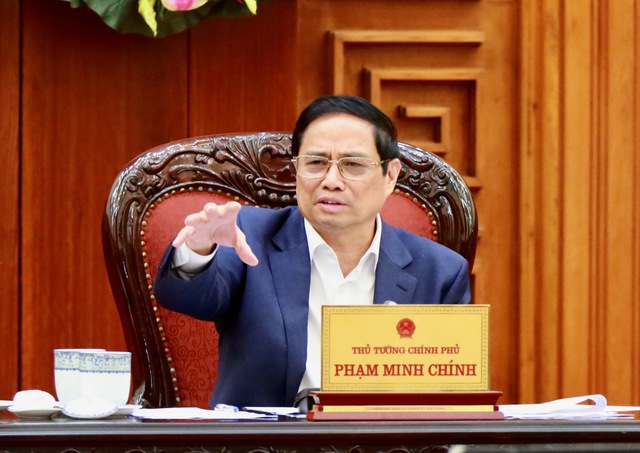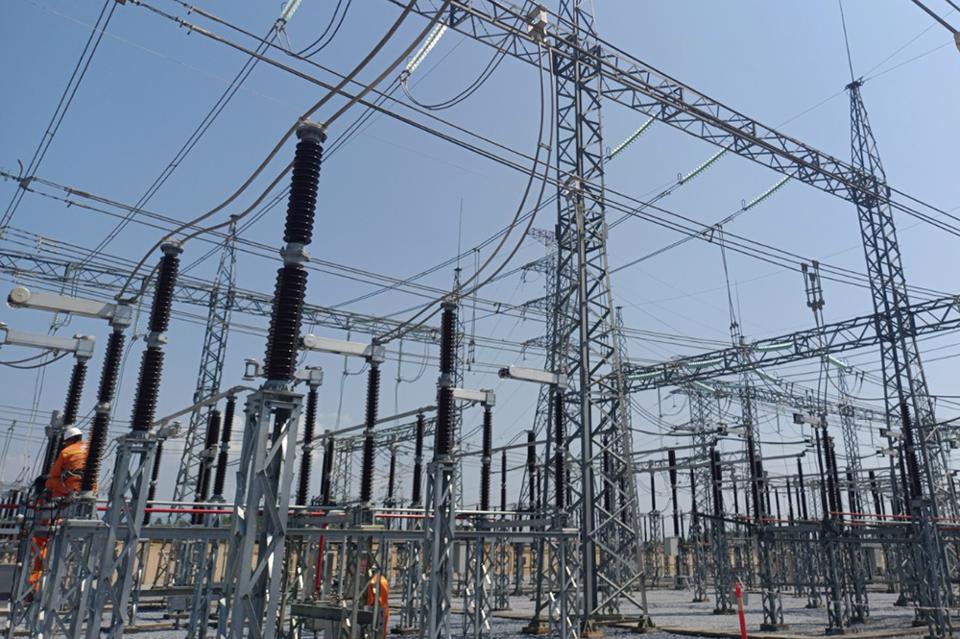"No power shortage" remains Government's priority: PM
There is a risk of short power outages in certain areas through May 25 due to the combination of intense heat and high electricity demand.
The Government will mobilize all necessary resources to avoid power interruptions between now and May 25.
The pledge was made by Prime Minister Pham Minh Chinh on May 18 at a government meeting to discuss ways to ensure sufficient electricity supply. The onset of the hot season has led to severe water shortages in several hydropower reservoirs, negatively affecting the electricity supply.
| Prime Minister Pham Minh Chinh speaks at the meeting. Photo: Nhat Bac |
By the end of 2022, total system capacity was estimated at 77,800 MW, an increase of nearly 1,400 MW from 2021.
Government officials have stated that this capacity is currently sufficient to meet the overall electricity demand, ensuring that there will be no long power interruptions. However, due to the combination of intense heat and high electricity demand, some areas may experience short blackouts through May 25.
The drought has reduced water levels in hydropower reservoirs, and delays in coal imports from Indonesia have affected the operation of thermal power plants.
In response to these challenges, the Prime Minister has issued directives for immediate solutions, emphasizing the importance of avoiding power outages for production, business activities, and daily consumption until May 25.
As a result, Government leaders have asked the Vietnam Coal and Minerals Group and related agencies to ensure an adequate supply of coal for domestic coal-fired power plants, emphasizing the need to provide as much coal as necessary to meet demand.
Power plants that rely on imported coal are encouraged to secure coal through borrowing, purchasing, repurchasing, and sourcing from other plants.
The Vietnam Oil and Gas Group (PVN) has been tasked with ensuring the availability of gas and oil for gas- and oil-fired power plants.
Meanwhile, the Electricity of Vietnam (EVN) has been instructed to maximize the use of hydropower until the appropriate time and to negotiate interim pricing arrangements with transitional renewable energy projects (such as wind and solar) to integrate this source into the grid.
| 500kv Viet Tri Substation. Photo: The Hanoi Times |
The Prime Minister has assigned Deputy Minister of Industry and Trade Dang Hoang An to directly supervise and guide EVN in implementing measures to efficiently operate the power system, ensure a stable power supply, and prevent potential shortages.
At a press conference held by the Ministry of Industry and Trade (MoIT) recently, Tran Viet Hoa, Director of the Electricity Regulatory Authority, announced that as of May 12, thirteen major hydropower reservoirs have either reached or are close to reaching dead storage levels.
EVN had earlier made calculations that indicated the risk of power shortages in the northern region, ranging from 1,600 MW to 4,900 MW during May and June in the event of a significant drop in reservoir levels.
Legal breakthroughs needed for renewable energy projects
Regarding the mobilization of renewable energy projects, Hoa mentioned that the ministry has agreed on a preliminary pricing scheme for eight wind and solar power plants based on negotiations between EVN and the respective investors.
"Once these plants are fully compliant, they will have the capacity to supply electricity to the national grid," Hoa said.
There are currently 84 renewable energy projects, with a total capacity of more than 4,600 MW, that have experienced delays in their commercial operation compared to the original plan. Among them, 34 transitional projects, including 28 wind power projects and six solar power projects with a total capacity of nearly 2,100 MW, have completed testing.
These projects are not entitled to preferential prices (feed-in tariff or FIT prices) for 20 years and are required to negotiate electricity prices with EVN based on the generation price brackets set by the MoIT earlier this year. The negotiated prices are relatively low, ranging from 20% to 30% higher than the previous tariffs.
However, negotiations between investors and EVN have been difficult due to the lack of detailed guidance on pricing methodology from MoIT.
In response, Deputy Prime Minister Tran Hong Ha has urged the MoIT to rectify the regulations and provide specific instructions on calculation methods and price negotiations for wind and solar power conversion projects.
It is suggested that alternative pricing options be explored, such as an independent audit and agreement approach similar to that used for Build-Transfer (BT) projects in the transportation sector. This would ensure that acceptable project returns are established, thereby maintaining investment incentives for companies, Ha said.














